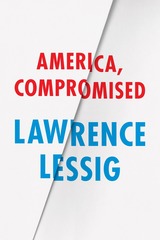
So begins Lawrence Lessig's sweeping indictment of contemporary American institutions and the corruption that besets them. We can all see it—from the selling of Congress to special interests to the corporate capture of the academy. Something is wrong. It’s getting worse.
And it’s our fault. What Lessig shows, brilliantly and persuasively, is that we can’t blame the problems of contemporary American life on bad people, as our discourse all too often tends to do. Rather, he explains, “We have allowed core institutions of America’s economic, social, and political life to become corrupted. Not by evil souls, but by good souls. Not through crime, but through compromise.” Every one of us, every day, making the modest compromises that seem necessary to keep moving along, is contributing to the rot at the core of American civic life. Through case studies of Congress, finance, the academy, the media, and the law, Lessig shows how institutions are drawn away from higher purposes and toward money, power, quick rewards—the first steps to corruption.
Lessig knows that a charge so broad should not be levied lightly, and that our instinct will be to resist it. So he brings copious, damning detail gleaned from years of research, building a case that is all but incontrovertible: America is on the wrong path. If we don’t acknowledge our own part in that, and act now to change it, we will hand our children a less perfect union than we were given. It will be a long struggle. This book represents the first steps.

John R. Lott, Jr. provides long-awaited empirical analysis in this book. By examining firms accused of or convicted of predation over a thirty-year period of time, he shows that these firms are not organized as the game-theoretic or other models of predation would predict. In contrast, what evidence exists for predation suggests that government enterprises are more of a threat.
Lott presents crucial new data and analysis, attacking an issue of major legal and economic importance. This impressive work will be of great interest to economists, legal scholars, and antitrust policy makers.
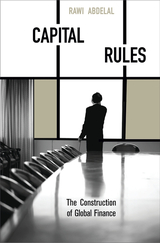
Listen to a short interview with Rawi AbdelalHost: Chris Gondek | Producer: Heron & Crane
The rise of global financial markets in the last decades of the twentieth century was premised on one fundamental idea: that capital ought to flow across country borders with minimal restriction and regulation. Freedom for capital movements became the new orthodoxy.
In an intellectual, legal, and political history of financial globalization, Rawi Abdelal shows that this was not always the case. Transactions routinely executed by bankers, managers, and investors during the 1990s--trading foreign stocks and bonds, borrowing in foreign currencies--had been illegal in many countries only decades, and sometimes just a year or two, earlier.
How and why did the world shift from an orthodoxy of free capital movements in 1914 to an orthodoxy of capital controls in 1944 and then back again by 1994? How have such standards of appropriate behavior been codified and transmitted internationally? Contrary to conventional accounts, Abdelal argues that neither the U.S. Treasury nor Wall Street bankers have preferred or promoted multilateral, liberal rules for global finance. Instead, European policy makers conceived and promoted the liberal rules that compose the international financial architecture. Whereas U.S. policy makers have tended to embrace unilateral, ad hoc globalization, French and European policy makers have promoted a rule-based, "managed" globalization. This contest over the character of globalization continues today.
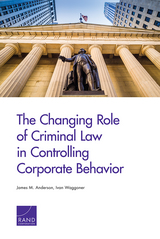
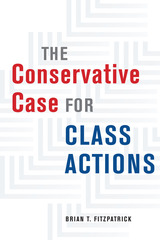
Conservatives have opposed class actions in recent years, but Fitzpatrick argues that they should see such litigation not as a danger to the economy, but as a form of private enforcement of the law. He starts from the premise that all of us, conservatives and libertarians included, believe that markets need at least some rules to thrive, from laws that enforce contracts to laws that prevent companies from committing fraud. He also reminds us that conservatives consider the private sector to be superior to the government in most areas. And the relatively little-discussed intersection of those two beliefs is where the benefits of class action lawsuits become clear: when corporations commit misdeeds, class action lawsuits enlist the private sector to intervene, resulting in a smaller role for the government, lower taxes, and, ultimately, more effective solutions.
Offering a novel argument that will surprise partisans on all sides, The Conservative Case for Class Actions is sure to breathe new life into this long-running debate.
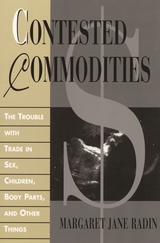
Not only are there willing buyers for body parts or babies, Radin observes, but some desperately poor people would be willing sellers, while better-off people find such trades abhorrent. Radin observes that many such areas of contested commodification reflect a persistent dilemma in liberal society: we value freedom of choice and simultaneously believe that choices ought to be restricted to protect the integrity of what it means to be a person. She views this tension as primarily the result of underlying social and economic inequality, which need not reflect an irreconcilable conflict in the premises of liberal democracy.
As a philosophical pragmatist, the author therefore argues for a conception of incomplete commodification, in which some contested things can be bought and sold, but only under carefully regulated circumstances. Such a regulatory regime both symbolizes the importance of nonmarket value to personhood and aspires to ameliorate the underlying conditions of inequality.

Drawing on real-life cases from a wide range of industries, two acclaimed experts offer a sophisticated but accessible guide to business deals, designed to maximize value for your side.
Business transactions take widely varying forms—from multibillion-dollar corporate mergers to patent licenses to the signing of an all-star quarterback. Yet every deal shares the same goal, or at least should: to maximize the joint value created and to distribute that value among the parties. Building on decades of experience teaching and advising on business deals, Michael Klausner and Guhan Subramanian show how to accomplish this goal through rigorous attention to designing incentives, conveying information, and specifying parties’ rights and obligations.
Deals captures the range of real-life transactional complexities with case studies covering Microsoft’s acquisition of LinkedIn, Scarlett Johansson’s contract dispute with Disney over the release of Black Widow, litigation surrounding LVMH’s pandemic-disrupted acquisition of Tiffany, the feud between George Norcross and Lewis Katz over ownership of the Philadelphia Inquirer, NBC/Viacom’s negotiation with Paramount over the final three seasons of Frasier, and many more. In clear, concise terms, Klausner and Subramanian establish the basic framework of negotiation and the economic concepts that must be addressed in order to maximize value. They show how to tackle challenges, such as information asymmetry between buyer and seller, moral hazard, and opportunistic behavior. And the authors lay out responses to common risks associated with long-term contracts, emphasizing that a deal’s exit rights should be carefully considered at the start of transaction design.
Unique in its practical application of economic theory to actual dealmaking, this book will be an indispensable resource for students and for professionals across the business and legal world.

High-profile case studies provide compliance professionals with a deep, holistic understanding of modern-day money laundering to better detect and deter it
Money laundering is a serious crime that presents a heightened, yet underrated, global threat. Although often thought of as a victimless crime, money laundering significantly impacts the global financial system, which leads to further crime, corruption, human exploitation, and environmental degradation and causes tremendous human suffering, especially in the most impoverished populations. Recent advances in technology, communications, and globalization mean there are more illicit funds in circulation today than ever before. In order to catch these criminals and expose their underground networks, compliance professionals must learn to navigate an increasingly complex web of criminal activity.
In The Flow of Illicit Funds, Ola M. Tucker goes beyond the implementation of anti–money laundering compliance programs offered by most guides and provides professionals with a holistic understanding of the modern money laundering system. Using recent case studies, Tucker explains some of the most common money laundering techniques used by criminals today, describes the key role of the financial system in the disguise and transfer of illicit funds, and offers valuable insight into how financial institutions can protect themselves from being used as conduits for the movement of dirty money. The book concludes by offering suggestions to help compliance professionals better detect and deter money laundering.
Through this unique perspective, compliance professionals and students will gain a broader overall understanding of the process of money laundering and the techniques criminals commonly use, including valuable insight into how criminals find legal loopholes and manipulate the financial system.
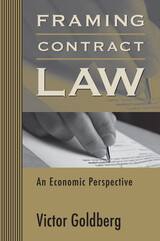
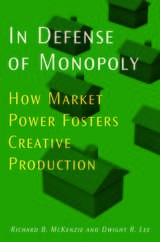
In Defense of Monopoly offers an unconventional but empirically grounded argument in favor of market monopolies. Authors McKenzie and Lee claim that conventional, static models exaggerate the harm done by real-world monopolies, and they show why some degree of monopoly presence is necessary to maximize the improvement of human welfare over time.
Inspired by Joseph Schumpeter's suggestion that market imperfections can drive an economy's long-term progress, In Defense of Monopoly defies conventional assumptions to show readers why an economic system's failure to efficiently allocate its resources is actually a necessary precondition for maximizing the system's long-term performance: the perfectly fluid, competitive economy idealized by most economists is decidedly inferior to one characterized by market entry and exit restrictions or costs.
An economy is not a board game in which players compete for a limited number of properties, nor is it much like the kind of blackboard games that economists use to develop their monopoly models. As McKenzie and Lee demonstrate, the creation of goods and services in the real world requires not only competition but the prospect of gains beyond a normal competitive rate of return.
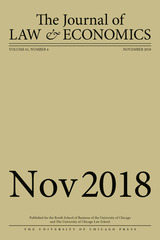


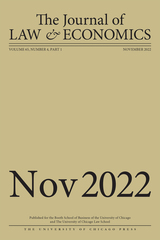
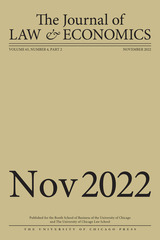
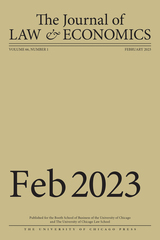
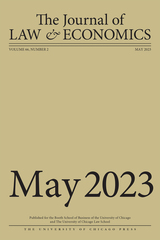
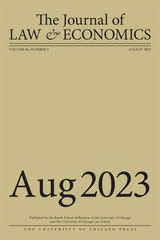

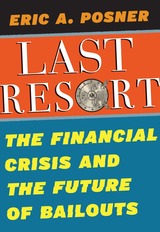
The answer, according to Eric A. Posner, is no. The federal government freely and frequently violated the law with the bailouts—but it did so in the public interest. An understandable lack of sympathy toward Wall Street has obscured the fact that bailouts have happened throughout economic history and are unavoidable in any modern, market-based economy. And they’re actually good. Contrary to popular belief, the financial system cannot operate properly unless the government stands ready to bail out banks and other firms. During the recent crisis, Posner agues, the law didn’t give federal agencies sufficient power to rescue the financial system. The legal constraints were damaging, but harm was limited because the agencies—with a few exceptions—violated or improvised elaborate evasions of the law. Yet the agencies also abused their power. If illegal actions were what it took to advance the public interest, Posner argues, we ought to change the law, but we need to do so in a way that also prevents agencies from misusing their authority. In the aftermath of the crisis, confusion about what agencies did do, should have done, and were allowed to do, has prevented a clear and realistic assessment and may hamper our response to future crises.
Taking up the common objections raised by both right and left, Posner argues that future bailouts will occur. Acknowledging that inevitability, we can and must look ahead and carefully assess our policy options before we need them.
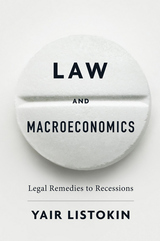
A distinguished Yale economist and legal scholar’s argument that law, of all things, has the potential to rescue us from the next economic crisis.
After the economic crisis of 2008, private-sector spending took nearly a decade to recover. Yair Listokin thinks we can respond more quickly to the next meltdown by reviving and refashioning a policy approach whose proven success is too rarely acknowledged. Harking back to New Deal regulatory agencies, Listokin proposes that we take seriously law’s ability to function as a macroeconomic tool, capable of stimulating demand when needed and relieving demand when it threatens to overheat economies.
Listokin makes his case by looking at both positive and cautionary examples, going back to the New Deal and including the Keystone Pipeline, the constitutionally fraught bond-buying program unveiled by the European Central Bank at the nadir of the Eurozone crisis, the ongoing Greek crisis, and the experience of U.S. price controls in the 1970s. History has taught us that law is an unwieldy instrument of macroeconomic policy, but Listokin argues that under certain conditions it offers a vital alternative to the monetary and fiscal policy tools that stretch the legitimacy of technocratic central banks near their breaking point while leaving the rest of us waiting and wallowing.
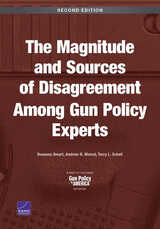
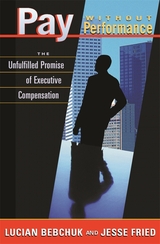
The company is under-performing, its share price is trailing, and the CEO gets...a multi-million-dollar raise. This story is familiar, for good reason: as this book clearly demonstrates, structural flaws in corporate governance have produced widespread distortions in executive pay. Pay without Performance presents a disconcerting portrait of managers' influence over their own pay--and of a governance system that must fundamentally change if firms are to be managed in the interest of shareholders.
Lucian Bebchuk and Jesse Fried demonstrate that corporate boards have persistently failed to negotiate at arm's length with the executives they are meant to oversee. They give a richly detailed account of how pay practices--from option plans to retirement benefits--have decoupled compensation from performance and have camouflaged both the amount and performance-insensitivity of pay. Executives' unwonted influence over their compensation has hurt shareholders by increasing pay levels and, even more importantly, by leading to practices that dilute and distort managers' incentives.
This book identifies basic problems with our current reliance on boards as guardians of shareholder interests. And the solution, the authors argue, is not merely to make these boards more independent of executives as recent reforms attempt to do. Rather, boards should also be made more dependent on shareholders by eliminating the arrangements that entrench directors and insulate them from their shareholders. A powerful critique of executive compensation and corporate governance, Pay without Performance points the way to restoring corporate integrity and improving corporate performance.
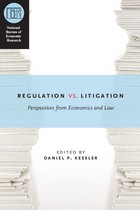
READERS
Browse our collection.
PUBLISHERS
See BiblioVault's publisher services.
STUDENT SERVICES
Files for college accessibility offices.
UChicago Accessibility Resources
home | accessibility | search | about | contact us
BiblioVault ® 2001 - 2024
The University of Chicago Press









